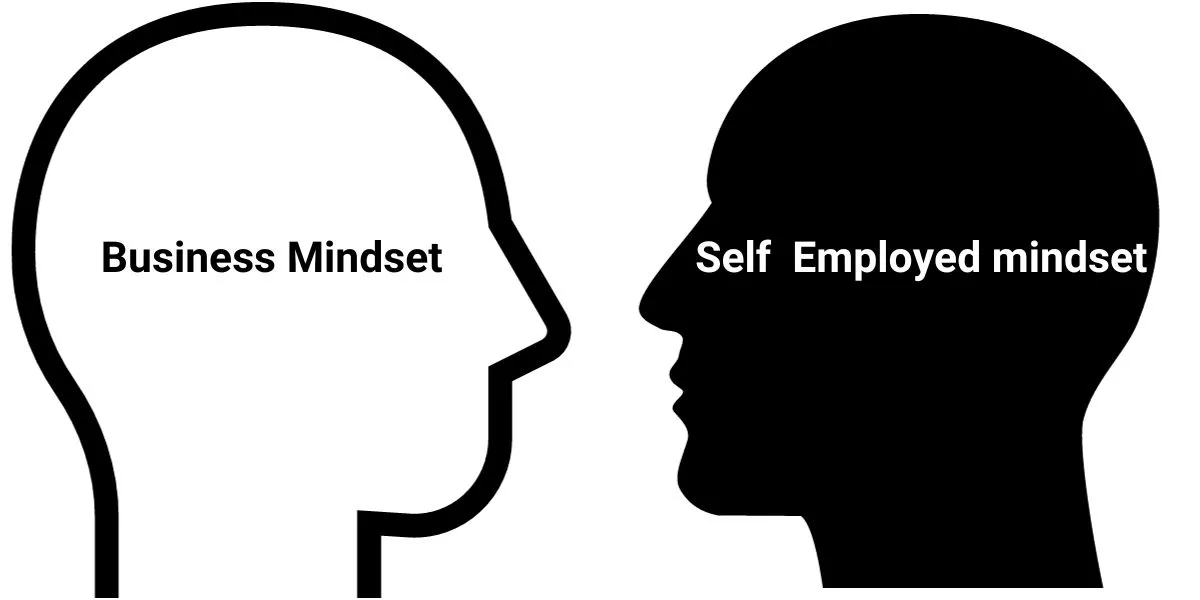Self-Employment vs. Business Mindset in the Indian Context
In today’s ever-evolving professional landscape, the lines between self-employment and embracing a business mindset have blurred significantly. This shift is particularly pronounced in the diverse and dynamic context of India. In this comprehensive article, we delve into the nuances of self-employment and a business-oriented approach, elucidating their differences with real-world examples and insights that can help you navigate the Indian market successfully.
Understanding Self-Employment
Self-employment is a concept that has been woven into the fabric of Indian society for centuries. It often involves individuals running small enterprises or pursuing freelance work. It’s crucial to grasp the fundamental characteristics that define self-employment in the Indian landscape.
1. Independence and Control
Self-employed individuals in India relish the independence and control they have over their professional lives. They make critical decisions without the constraints of organizational hierarchies, making it a popular choice for freelancers, artists, and small business owners.
2. Diverse Fields
Self-employment transcends numerous sectors in India. From street vendors and small traders to independent professionals like doctors and lawyers, there’s a vast array of self-employed individuals contributing to the country’s economic landscape.
3. Financial Responsibility
One of the distinguishing features of self-employment is the financial responsibility it entails. Self-employed individuals must manage their finances, from savings to taxation, which can be a challenging but rewarding endeavor. To illustrate self-employment in the Indian context, let’s consider the street vendor. Often found on bustling Indian streets, these entrepreneurs operate food stalls, clothing shops, or other small businesses. They manage their inventory, deal with customers directly, and enjoy the independence of setting their prices.
Embracing a Business Mindset
Contrasting self-employment, the business mindset in India involves creating and expanding a more organized enterprise. This mindset revolves around growth, scalability, and a strategic approach to achieve success.
1. Scaling Opportunities
The business mindset is deeply rooted in the pursuit of growth. Indian entrepreneurs with this mindset seek to scale their operations and reach a larger market, whether within India or globally.
2. Team Building
Business-minded individuals often create teams to handle various aspects of the business, from marketing to operations. This collaborative approach is aimed at increasing efficiency and productivity.
3. Financial Planning
Business-oriented individuals place great emphasis on financial planning. They carefully strategize investments, manage budgets, and explore funding options to ensure the sustainable growth of their enterprises.
4. Example: E-commerce Giant – Flipkart
A prime example of a business mindset in India is Flipkart. What started as a small online bookstore evolved into one of India’s largest e-commerce platforms. The founders, Sachin and Binny Bansal, adopted a business approach, raising substantial investments, building a robust team, and continuously expanding their offerings.
Key Differences and Finding Your Path
Now that we’ve explored the fundamental aspects of self-employment and a business mindset in the Indian context, it’s essential to understand the key differences between the two.
1. Scale vs. Independence
The primary distinction lies in the scale of operations and the level of independence. Self-employed individuals tend to operate at a smaller scale, focusing on independence and personal control. Business-oriented individuals aim to grow their ventures significantly.
2. Risk Tolerance
Self-employment often involves lower financial risk, while embracing a business mindset typically comes with higher financial risks. Business owners frequently seek external investments and face greater pressure for returns.
3. Long-Term Vision
The business mindset encourages a long-term vision, while self-employed individuals may focus on short-term gains. Long-term planning and strategic thinking are inherent to the business approach.
4. Adaptability
Business-oriented individuals are more likely to adapt to changing market conditions and pivot their strategies as needed. Self-employed professionals may find it more challenging to do so, given their smaller scale and independence.
In conclusion, the distinction between self-employment and a business mindset in the Indian context is marked by the scale of operations, risk tolerance, long-term vision, and adaptability. Each path has its merits, and the choice ultimately depends on your goals and aspirations.
If you want to read more information about how to boost traffic on your website, visit The Insider’s Views.





